Since 2019, the 4th October has been designated as No Disposable Cup Day to bring awareness to the damaging effects of single-use cups, whether that be plastic water cups or paper coffee cups.
An estimated 16 billion disposable coffee cups are used and discarded each year, with just 0.25% being recycled, the reason for this being that it is simply too complicated a process.
Why aren’t coffee cups being recycled?
Although these are primarily paper and cardboard, coffee cups need to remain insulated and protected from absorbing all the liquid, so they are lined with PE plastic, or polyethylene. Polyethylene requires a certain waste bin for a certain recycling process, which more often than not is not available. Oftentimes, coffee cups wind up in paper or mixed recycling which can render the entire load of waste non-recyclable, or they are just chucked into landfill or float into the oceans.
What impact does this have on the environment?
To even source the materials in the first place, trees must be cut down. 6.5 million trees are chopped down every year to be made into paper, 70% of which comes from our rapidly depleting forests. Once these precious finite resources have been collected, there is still the issue of energy and water that is put into the manufacturing process. A shocking 4 billion gallons of water is used to make single-use coffee cups annually, and enough energy to power 54,000 homes for the entire year.
You would hope that after all of this, more of them would be recycled! Unfortunately, in the UK alone 2.5 billion coffee cups are being used and the majority of them end up in landfills. This produces an equivalent of more than 152,000 tonnes of carbon, which is around the same volume of carbon emissions produced by 33,000 cars a year. Even the cups that do end up being recycled cause further emissions from having to be transported to one of the 53 high-temperature industrial facilities currently in the UK.
What is a more sustainable option to coffee cups?
In recent years, reusable bottles, thermoses, and coffee cups have been cropping up more and more. These are almost always glass, aluminium, or stainless steel, but because it’s not plastic, this is able to be immediately written off as being bad for the environment by consumers - but this is not the case.
Glass can make a visually pleasing alternative to a disposable coffee cup, but it is unfortunately quite impractical, particularly if you are travelling. Glass cups are easily smashed and also pretty heavy to be carrying around. The carbon footprint of glass manufacturing, however, isn’t too bad, at 0.48-0.725 tonnes per tonne of glass.
Steel bottles are not quite as eco-friendly as advertised… they’re pretty energy intensive to manufacture, at around 1.85 tonnes of carbon emissions released per singular tonne of steel made. Stainless steel, in fact, uses nearly 10 times the energy than regular steel, as well as using 7 times more fossil fuel than plastic manufacture.
Many popular stainless steel reusable bottle brands actually use 100% virgin materials when in fact recycled materials would use just 5% of the energy. Mainstream reusable bottles frequently contain artificial chemicals such as BPA, melamine, and formaldehyde, and these can leach your drink, not to mention that this can also prevent the item from being recycled or biodegrading. For a product that is heavy, easily dented, and tricky to clean, it may not be worth it.
Aluminium varies within a wide range in regards to the amount of carbon emitted during production, from less than 4 tonnes per tonne of aluminium to more than 20! This all depends on what process is used, with coal power based manufacturing using the most.
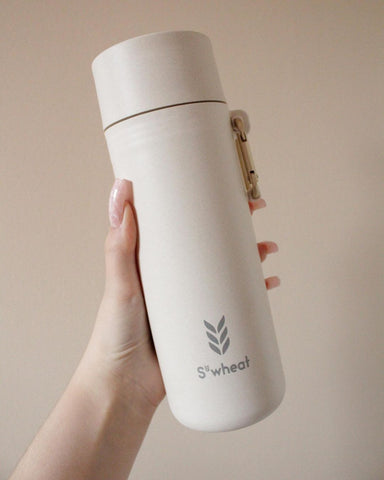
The S’wheat bottle is made from a bioplastic, which is a natural material that mimics the texture and strength of plastic but is really made from plants. Our unique bioplastic material is made from bamboo fibres and wheat straw, two of the hardiest plants around. They are naturally antimicrobial, as well as lightweight and durable. Not only is this bottle three times stronger than steel, it weighs nearly as little as half the weight.
This bottle was designed to conquer all the issues with the current mainstream reusable bottles, including a practical design for an easy clean, a resistance to unpleasant odours, and it’s convenient too - with the handy carabiner, your plant-based S’wheat bottle can be easily attached to your belt or bag so it can come with you wherever you go.
This eco bottle is kind to the planet too. Our reusable bottles use just 5% of the energy used to make a steel bottle and on top of that, we offset more carbon than we produce, so we are a proud carbon negative brand. We manage to do this through Ecologi, where we have planted over 8,000 trees, as well as working closely with charities that take environmental initiatives. Wheat straw even absorbs more carbon than it emits during photosynthesis, making our bottle all the more sustainable - learn more about wheat straw over on our blog.
The S’wheat reusable bottle can be used to keep your water cool or your coffee hot - it is naturally insulated, so your drinks temperature will be maintained for hours! If you are an employer who wants to put an end to single-use plastic bottles or coffee cups lined with PE plastic in your workplace, this is the perfect solution.
Here at S’wheat, we offer reduced prices when you co-brand reusable bottles with us. You can choose from one of our four distinct colours or alternatively, we can match to any Pantone shade to fit your branding. This alongside your company’s logo in high-quality laser engraving makes an ideal corporate gift or promotional branded merchandise for potential clients and customers.
✓ Carbon offset
✓ Biodegradable
✓ Lightweight
✓ Durable
✓ Naturally insulated
✓ Holds 550 ml
✓ High quality laser engraving
✓ Free from melamine, BPA, formaldehyde
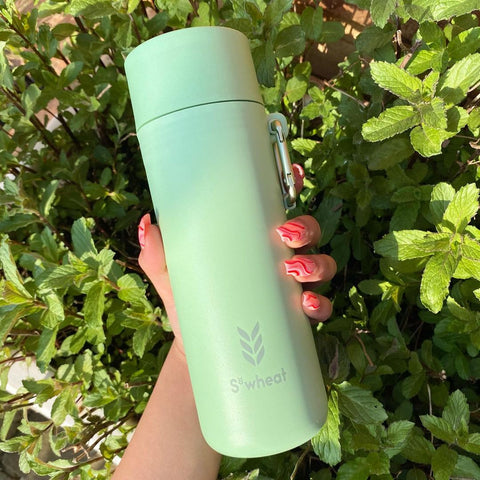
Enquire about S’wheat’s corporate branding today!
Our Eco-Friendly Co-branding Process:
Choose Your Bottle: Choose from our four distinct colours: Black, Blue, Green and Oat or we can work on a new custom colour for you.
Send Us Your Logo: Email us your logo file and we will create a mock up image for you so we can review your design before moving forward with production.
Engraving: We are proud to partner with a UK based company leading the way in high quality laser engraving and together, we brand your bottles.
Impact: With every S'wheat bottle corporate branded order we plant at least fifty trackable native trees in your company's name, remove plastic from the oceans, donate profits to protect sea life and provide a report to showcase all of this. We are a carbon neutral company and a certified social enterprise.

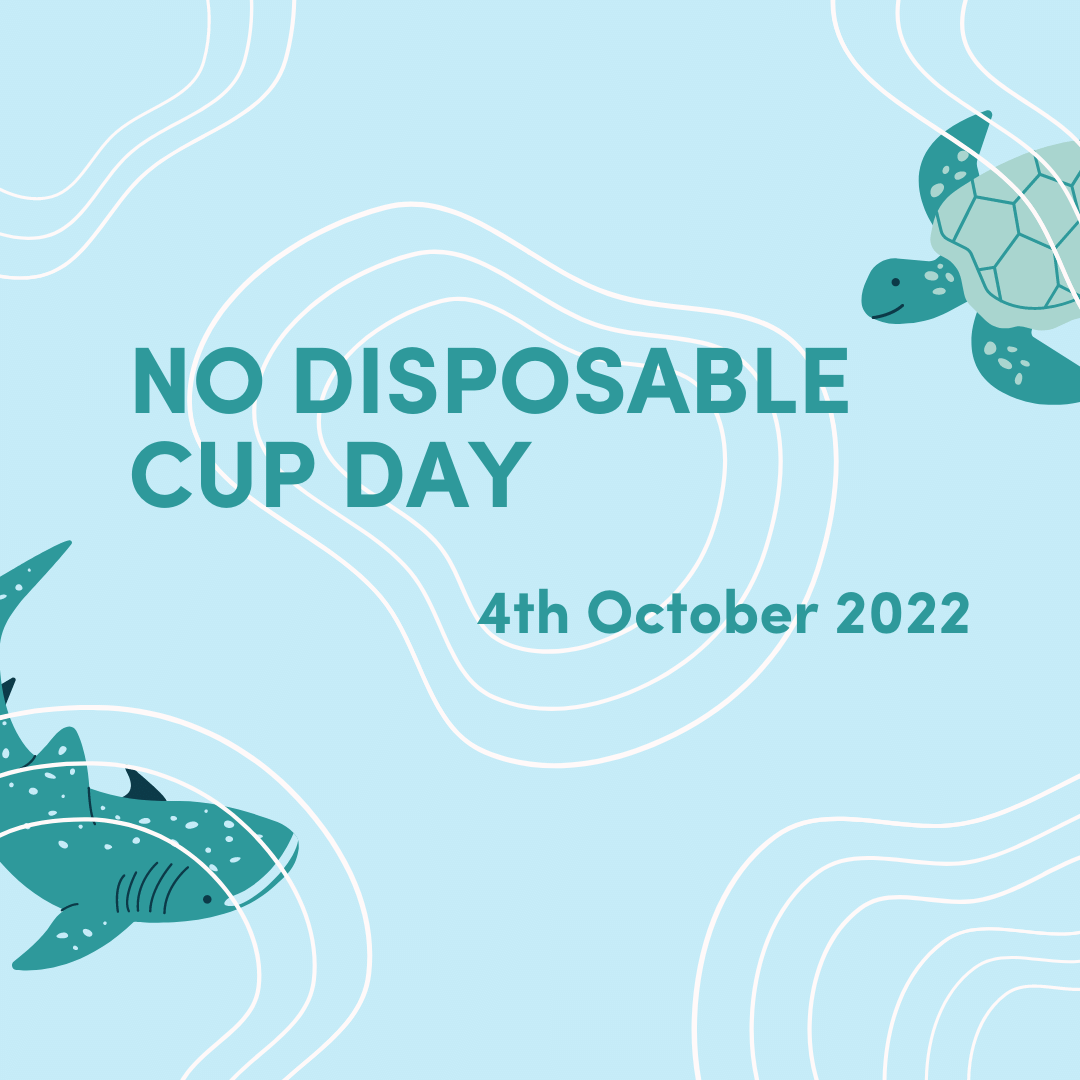
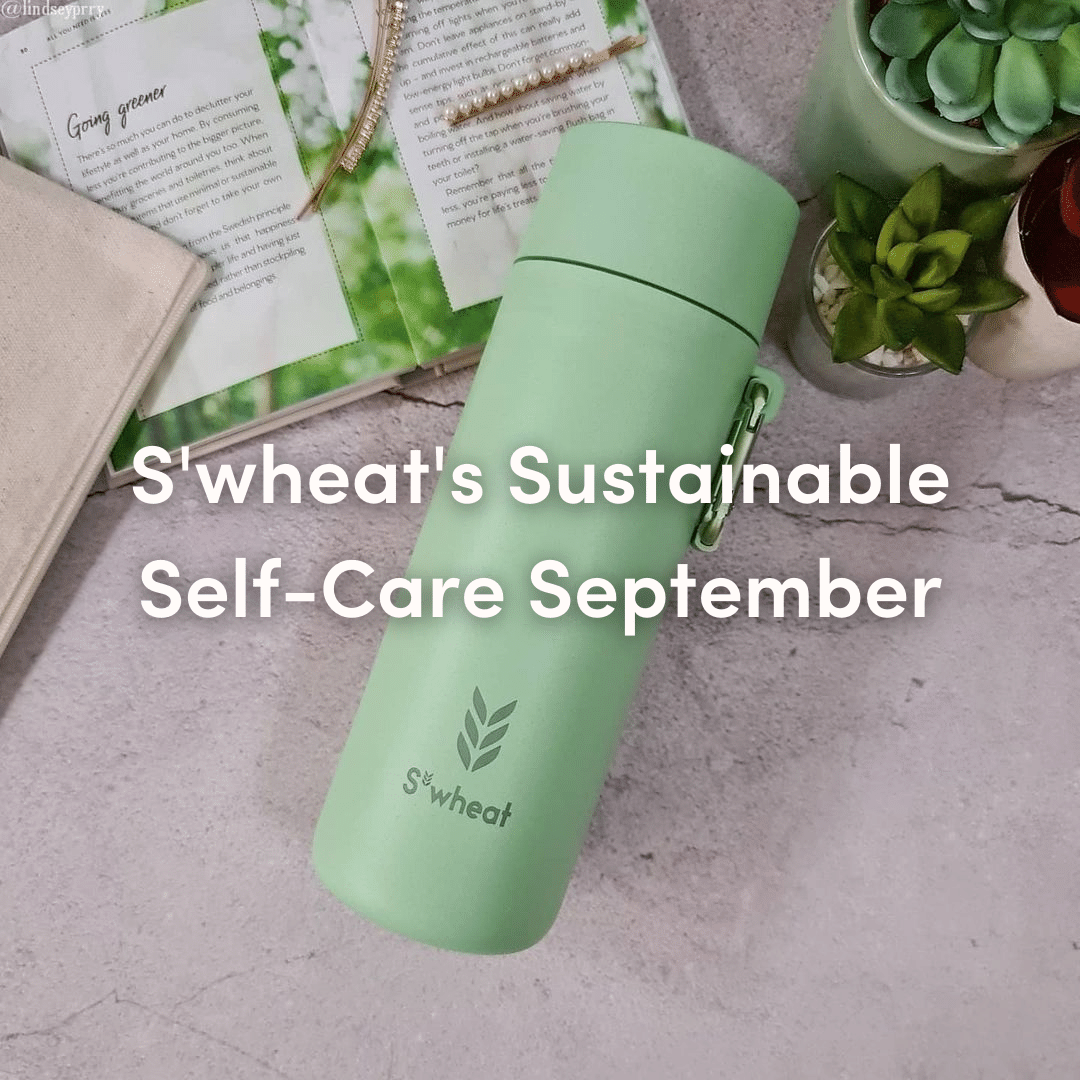
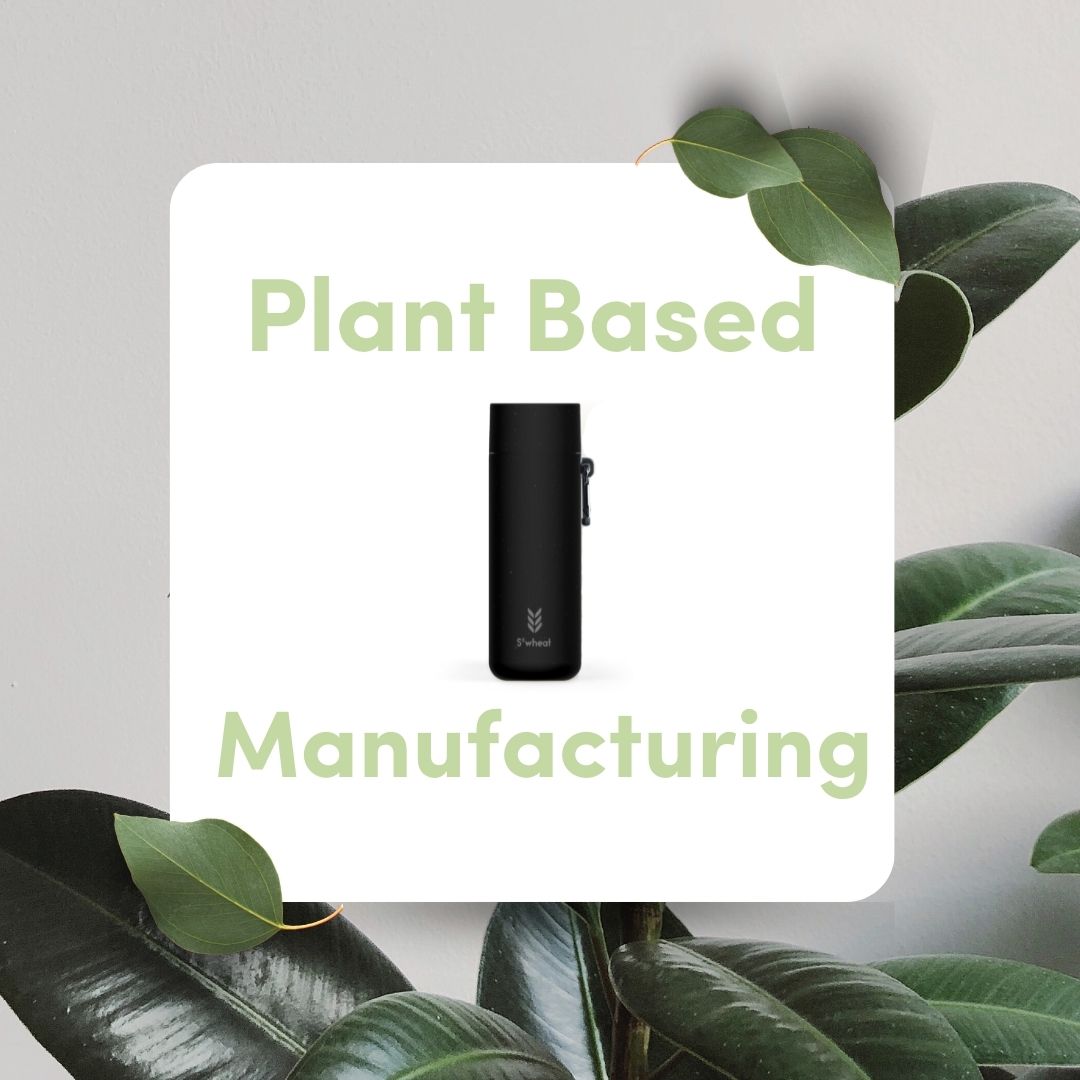
Leave a comment
All comments are moderated before being published.
This site is protected by hCaptcha and the hCaptcha Privacy Policy and Terms of Service apply.